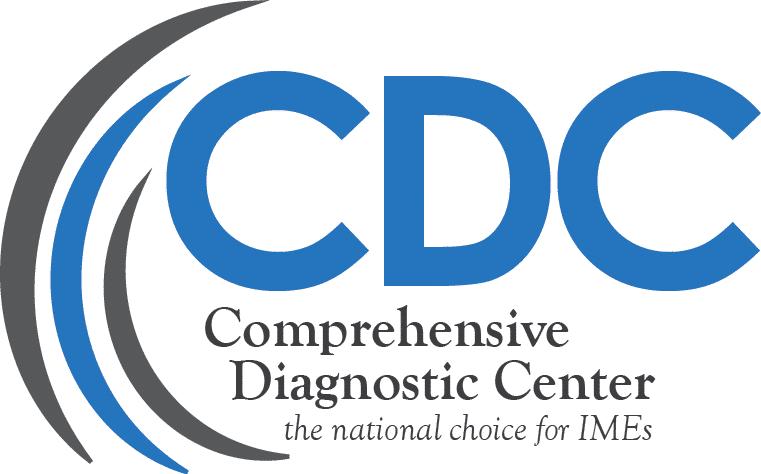The Impact of Accurate Medical Record Reviews on Legal Outcomes
November 1, 2024Addressing Common Misconceptions About IMEs: What Legal and Insurance Professionals Should Know
January 1, 2025Coordinating IMEs:
The Vital Role of Nurse
Case Managers
Independent Medical Evaluations (IMEs) are essential in determining the validity and scope of claims in workers’ compensation, disability, and personal injury cases. They provide objective medical assessments that inform decisions impacting patients, insurers, and employers. However, the effectiveness of IMEs often hinges on the work of nurse case managers, whose role in coordinating these evaluations is indispensable.
With their unique combination of clinical expertise, organizational skills, and patient advocacy, nurse case managers ensure that IMEs are conducted efficiently, fairly, and with the patient’s best interests in mind. This article explores the multifaceted responsibilities of nurse case managers in the IME process and the value they bring to the healthcare and legal systems.

The Key Responsibilities of Nurse Case Managers in IMEs
Nurse case managers play a pivotal role in the IME process, managing tasks that require a balance of medical knowledge and logistical oversight. Their responsibilities span four critical areas: patient preparation, communication and coordination, care plan development, and advocacy. (AIHCP, 2024)
1. Patient Preparation
Preparing patients for an IME involves more than scheduling an appointment. Nurse case managers ensure patients are informed, supported, and ready for the evaluation.
Educating Patients About IMEs: Patients often approach IMEs with apprehension. Nurse case managers alleviate concerns by explaining the purpose, process, and expectations of the evaluation. Clear communication fosters trust and reduces anxiety. According to research, effective patient education by case managers enhances engagement and satisfaction during medical evaluations (NCBI, 2023).
Gathering Comprehensive Medical Records: IME physicians rely on detailed medical histories to form accurate conclusions. Nurse case managers collect and organize diagnostic results, treatment plans, and other relevant records, ensuring the physician has a complete picture.
Addressing Patient Concerns: Many patients have questions about how IMEs impact their claims. Nurse case managers provide clarity, helping patients feel supported throughout the process.
2. Communication and Coordination
IMEs involve multiple stakeholders, and nurse case managers act as the central hub of communication, ensuring the process is seamless.
Scheduling and Logistics Management: Nurse case managers coordinate with IME physicians, patients, and insurers to schedule evaluations at convenient times and locations. Their organizational skills minimize delays and disruptions.
Facilitating Information Flow: Nurse case managers convey critical information—such as medical history and case-specific questions—to IME physicians, ensuring evaluations are thorough and relevant.
Timely Follow-Up on IME Reports: After the evaluation, nurse case managers expedite the retrieval and distribution of IME reports to stakeholders, preventing unnecessary delays in decision-making.
Timely communication and coordination have been shown to improve healthcare outcomes by ensuring continuity and clarity in medical evaluations (NCBI, 2023).
3. Care Plan Development
The findings from an IME often guide treatment plans and claims decisions. Nurse case managers play a crucial role in interpreting and applying these findings.
Analyzing IME Results: Nurse case managers review IME reports to understand the patient’s functional limitations and medical needs. Their clinical expertise ensures that findings are accurately interpreted.
Collaborating with Healthcare Teams: Following the IME, nurse case managers work with treating physicians and specialists to develop comprehensive care plans. This collaboration ensures treatment aligns with the patient’s medical status and recovery goals.
Patient Education on Treatment Plans: Patients may struggle to understand IME findings. Nurse case managers simplify complex medical information, helping patients make informed decisions about their care.
The Value of Nurse Case Managers in IMEs
The involvement of nurse case managers delivers measurable benefits to all stakeholders in the IME process:
Improved Patient Experience
Patients who feel supported and informed are more likely to trust the IME process, resulting in better engagement and satisfaction.
Streamlined Communication
Centralizing communication through nurse case managers reduces misunderstandings and delays, enabling faster resolutions.
Optimized Resource Utilization
Efficient preparation and coordination minimize unnecessary tests and procedures, reducing costs and ensuring resources are used effectively. (AIHCP, 2024)
Cost-Effective Care
By streamlining the IME process and ensuring findings are actionable, nurse case managers help contain costs for insurers and employers while promoting effective care.
Conclusion
Nurse case managers are integral to the success of Independent Medical Evaluations, ensuring that the process is efficient, patient-centered, and outcome-driven. Their ability to blend clinical expertise with administrative oversight makes them invaluable in navigating the complexities of IMEs.
At CDC Comprehensive Diagnostic Center, we recognize the critical role nurse case managers play in coordinating IMEs. By fostering collaboration and maintaining high standards of care, our team ensures that every evaluation supports optimal outcomes for patients and stakeholders. Contact us today to learn more about our IME services and how we can support your organization.
References
- National Center for Biotechnology Information. (2023). Care Coordination in Complex Systems. Retrieved from https://www.ncbi.nlm.nih.gov/pmc/articles/PMC9912854/
- National Center for Biotechnology Information. (2023). Improving Healthcare Outcomes Through Effective Communication. Retrieved from https://www.ncbi.nlm.nih.gov/books/NBK562214/
- American Institute of Health Care Professionals. (2024). Understanding the Role of a Case Manager: Key Responsibilities. Retrieved from https://aihcp.net/2024/10/03/understanding-the-role-of-a-case-manager-key-responsibilities/
- American Institute of Health Care Professionals. (2024). Case Management and Health Care Delivery and Organization. Retrieved from https://aihcp.net/2024/04/17/case-management-and-health-care-delivery-and-organization/

